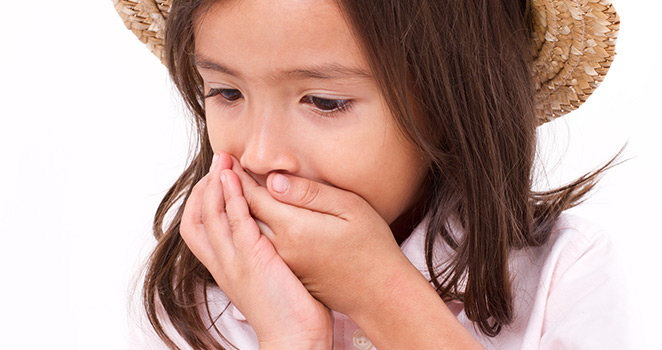Pediatric Gastroenterology
Pediatric Gastroenterology in Relation to Recurrent Vomiting and Diarrhea

Children are, of course, human beings that are in need of medical attention; they are susceptible to serious conditions as well. However, the body of a child is different from those of full-grown adults and experiences conditions more severely. Aside from their bodies being smaller and more easily run down, children are unable to communicate their symptoms as efficiently as their adult caretakers. As a result, specialized physicians ensure that branches of medicine are designed for just children that protect their well-being's and educate their caretakers on how to abate or prevent any future issues.
Often, common conditions are more likely to affect children. Among these conditions include recurring vomiting and diarrhea, and every child will experience these symptoms at least once in their lifetimes. A multitude of causes result in these uncomfortable conditions, and some of them require the specialized field of Pediatric Gastroenterology.
This specialty focuses on the gastrointestinal tract, liver, and pancreas. Typically, a specialist in this field treats children from infancy until they are eighteen years of age, but special circumstances sometimes arise that will let a Pediatrician remain with their patient past the age of eighteen, as long as their scope of practice allows them to. As vast illnesses arise in the field of medicine each day, this branch of study was needed to diagnose the causes and to come up with efficient means to treat or cure the symptoms as a response.
The Causes of Chronic Vomiting and Diarrhea
Recurrent vomiting and diarrhea are neither illnesses nor diseases, but are instead the symptoms of internal conditions and illnesses. The causes are vast and drastically differ in severity; occasional vomiting and diarrhea can be fairly normal, but just as an adult would monitor their symptoms, a watchful eye must be placed on children exhibiting the same problems. So, what causes vomiting and diarrhea in general, and why do these signs sometimes demonstrate chronic characteristics?
- Food Poisoning: Meat, seafood, and eggs. Monitoring this is crucial, as it could fester into more serious and potentially fatal conditions, like Escherichia coli (E. coli) infestation.
- Viral Infections: like the rotavirus, this is the most common cause of these symptoms in children.
- Bacterial Infections: including salmonella and even those caused by parasites, Giardia and tapeworms are common in this case.
- Certain medications, including antibiotics.
- Food Intolerance: especially gluten or lactose allergies.
Of course, those are the most common causes of these symptoms, but more severe circumstances can cause or exacerbate these signs, including:
Gastroenteritis
This is a condition commonly referred to as the stomach flu, and is when the stomach and intestines become inflamed, are unable to absorb water adequately, and cause general discomfort and frequent bowel movements. This is an easily spreadable condition among children especially in school or daycare environments and is treated with rest, hydration, and fever reducers.
Pediatric Crohn's Disease
This is a disease in which a child's bowels are constantly inflamed, and where recurrent vomiting and diarrhea are to be expected. Though this was a disease once considered impossible for children to contract, is now in nearly 30% of the population in people under age 20. Aside from vomiting and diarrhea, abdominal pain, rectal bleeding, a delay in puberty, and even growth failure are symptoms of this disease.
Irritable Bowel Syndrome (IBS)
This is not a disease but is a collection of signs that demonstrate a more severe problem or disruption of the gastrointestinal (GI) tract. Children with this condition often demonstrate constant frequency with the symptoms, but it is not a condition which contributes to the total destruction of the tract if properly treated. Common causes of this set of symptoms include:
- Brain to gut signal problems, which essentially mean that the brain is not properly transmitting signals to the small and large intestines.
- Mental health problems, including depression, anxiety, and post-traumatic stress disorder (PTSD).
- Small Intestinal Bacterial Overgrowth (SIBO), which is the result of too many bacteria, inhabits the intestine. Though some bacteria are common and important in maintaining bodily functions, an overgrowth could be incredibly dangerous to the host.
- Genetics; those who have parents with this condition are likely to demonstrate the same signs.
How Do Pediatric Gastroenterologists Treat These Conditions?
The treatment of recurrent vomiting and diarrhea are dependent on the cause of these symptoms. Typically, a patient will be instructed to receive plenty of rest, water, and the replenishment of any lost electrolytes; if the symptoms resulted from a certain food, a physician will urge the avoidance of that food or to even follow up with an allergist.
However, if these symptoms are the effect of more serious conditions, professionals will adjust the treatment to ensure that the disease, as a whole, is maintained. For example, those with Pediatric Crohn's Disease are often prescribed vitamins, 5-aminosalicylic acid (5-ASA), antibiotics, and are often guided through their daily nutritional intake. On the contrary, children with intestinal blockages or general disruptions will receive surgery to abolish the causes.
In summary, frequent vomiting and diarrhea are common symptoms of a multitude of illnesses. However, remaining aware of what the cause is, monitoring the frequency of the symptoms, and following up with a Pediatric Gastroenterologist are crucial factors to guarantee the protection and overall health of the child.